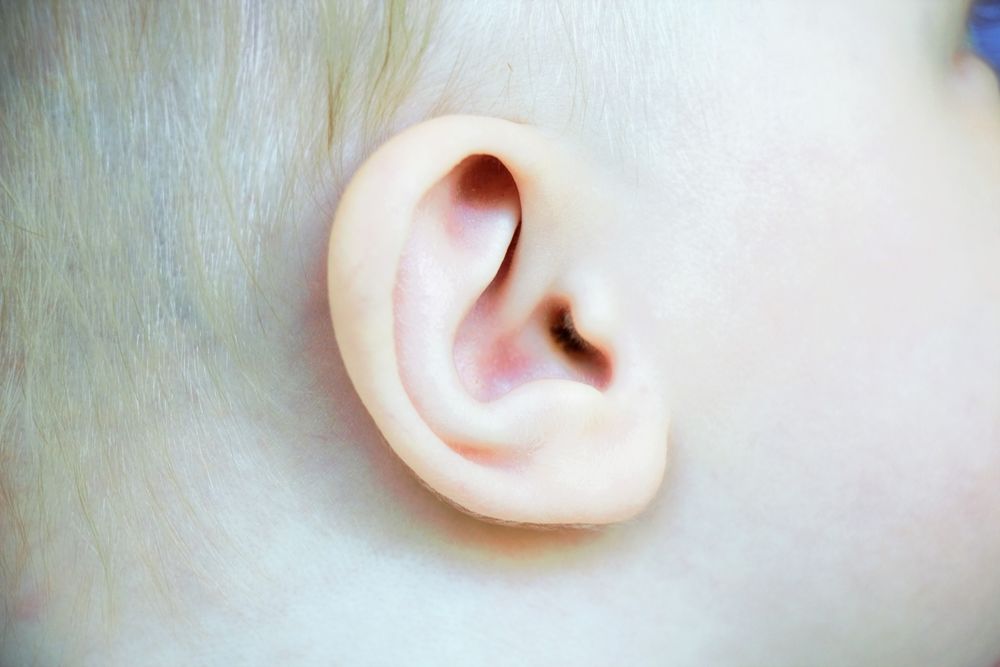
Although sounds are muffled by the surrounding amniotic fluid, your baby can hear even in the womb – and she'll probably come to know your voice quite well. This is partly due to the fact that the auditory system is highly developed early on. "Hearing is the most sensitive of all senses at birth," says Kenneth Lyons Jones, M.D., a professor of pediatrics at the University of California, San Diego.
You'll notice from day one that if your newborn hears a loud noise, he'll undoubtedly startle. What he won't be able to do is turn toward a noise; that happens a bit down the road. "A baby will begin to turn his head toward a familiar sound, particularly his mother's voice, within the first month," Jones says. "This is very important and something you should watch for." By 6 to 12 months she should also be able to track sounds coming from behind her or from the other side of the room.
Your infant prefers high-frequency tones like the female voice, probably because she can hear them better. Maybe that's why it's natural for adults to adopt a high-pitched singsong voice (also known as "motherese") when talking to babies. By 4 to 6 months your baby should start to repeat recognizable sounds and babble.
While some developmental milestones are not crucial in terms of when they are mastered, responding to sounds is. That's because it's tied so closely to hearing. "If a child is not walking until 14 months, maybe even a bit later, that's OK," Jones says, "but if he's not hearing, that's really important. Speech is totally dependent on hearing, so this is a critical issue."
While your newborn may have had a hearing screening test in the hospital, as many states now mandate, it's still important to watch for signs that he's hearing properly. "If at the end of the first month your baby's not turning toward your voice, bring it to your pediatrician's attention right away," Jones says.
Causes of Baby Hearing Loss
Some newborn hearing impairment is genetic. But a baby can be born with hearing loss even if there's no obvious family history. For example, both parents may carry a recessive gene for deafness, causing the child to inherit the trait. Other causes of congenital hearing loss are low birth weight (a baby born weighing under 3.3 pounds) and a mother's infection with certain viruses, such as rubella or cytomegalovirus (CMV) during pregnancy.
After birth, chronic and untreated ear infections can cause damage to a baby's ears, ranging from rupturing of the eardrum to, in rare cases, permanent hearing loss. The temporary hearing loss that often comes with an ear infection, due to fluid blocking the middle ear, can also be problematic if your baby is getting one infection after another. The recurrent hearing impairment can interfere with a baby's language development. After your baby is treated with antibiotics, make sure to schedule a follow-up visit so the doctor can check that your baby's ears are indeed clear.
The Importance of Testing Baby’s Hearing
Hearing impairment is one of the most common birth defects. Every year in the United States, 12,000 children are born with a hearing impairment, and 4,000 of them are deaf. The good news is that with early intervention, these children can achieve normal language development. Many people don't know that there are hearing aids and therapy for infants only weeks old; cochlear implants are possible once a child is 1. A University of Colorado study found that out of a group of 150 children with a hearing loss, children who were identified and fitted with hearing aids by 6 months of age had normal language development at age 3. In contrast, the language skills of kids whose hearing problem wasn't detected until after 6 months of age tested below normal at age 3.
You might assume that your doctor is evaluating your baby's hearing at well-baby visits. But while he's checking for signs of fluid and infection, he's not formally testing your child's hearing. Fortunately, thanks to recent technological advances and a greater awareness of the importance of early detection, hearing-screening programs for newborns are starting up in more and more hospitals across the country, making early diagnosis of any problem almost routine. One study showed that when babies were screened as newborns, hearing loss was identified at about 2 months of age instead of the current average, 2.5 years. The screenings involve two simple, painless tests that can be done while the child is sleeping.
Ask your pediatrician if your child's hearing was screened at birth; if it wasn't, find out about scheduling a test. Early assessment is especially important if any member of your family has a hearing problem or if your baby was premature or very ill as a newborn.
To find out if your state performs newborn hearing-screenings, visit www.hearinghealth.net.
Signs of Hearing Impairment in Babies
Here's an age-by-age guide of signs to watch out for:
Birth
3 to 4 Months
5 to 6 Months
6 to 7 Months
12 Months
2 Years
Any Age





